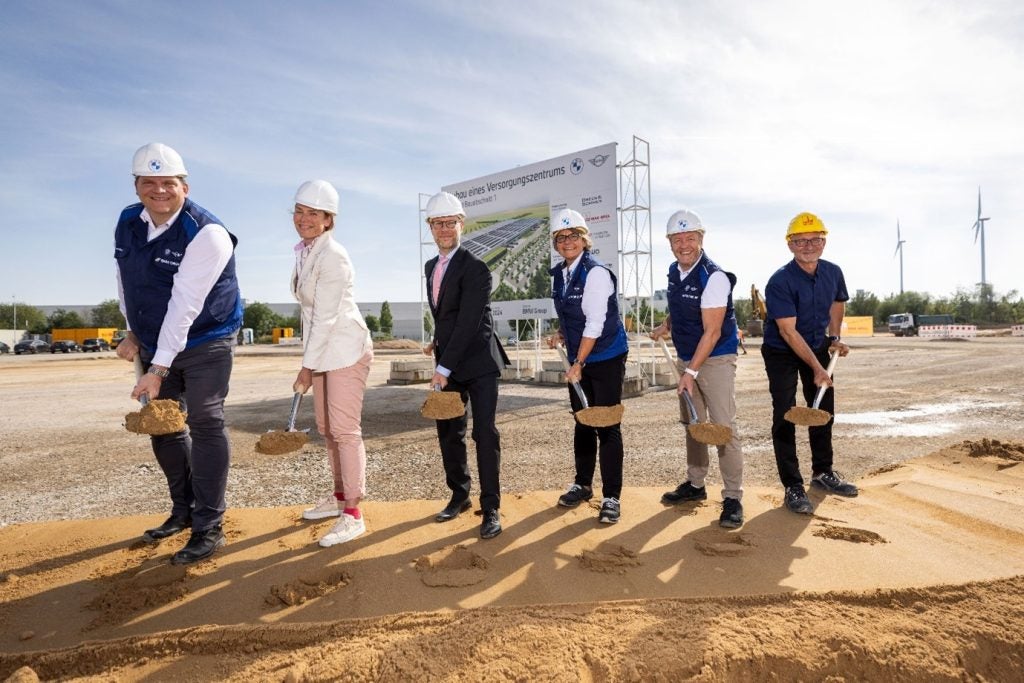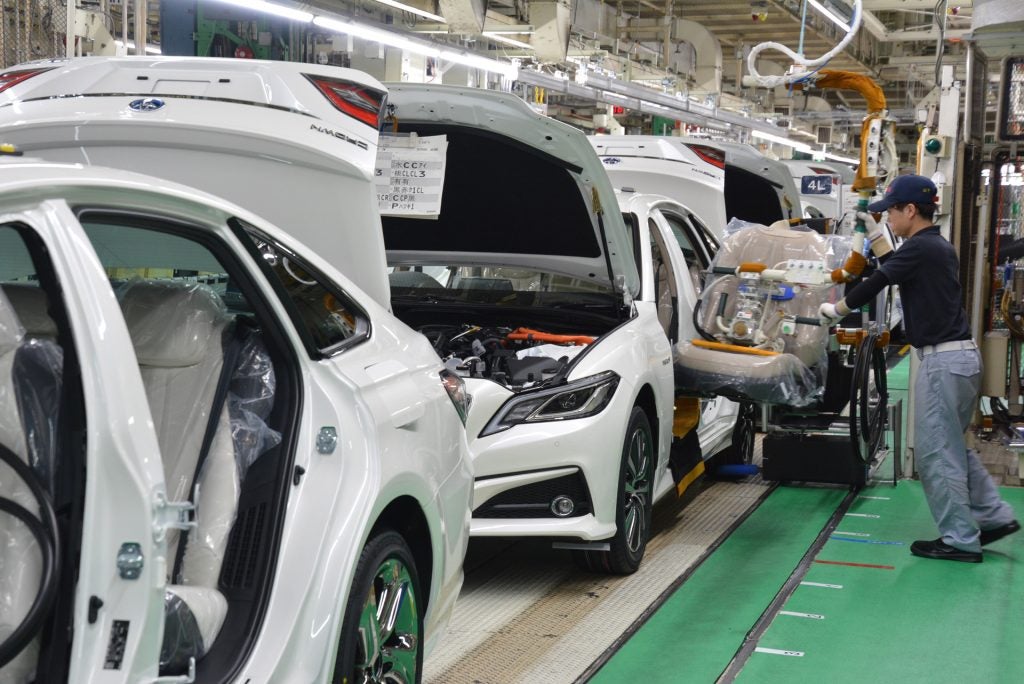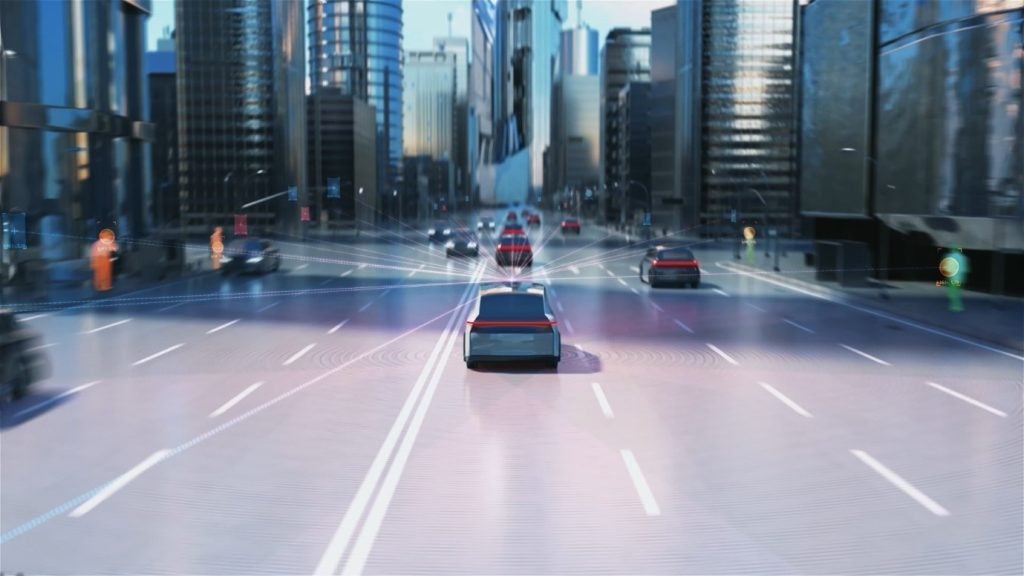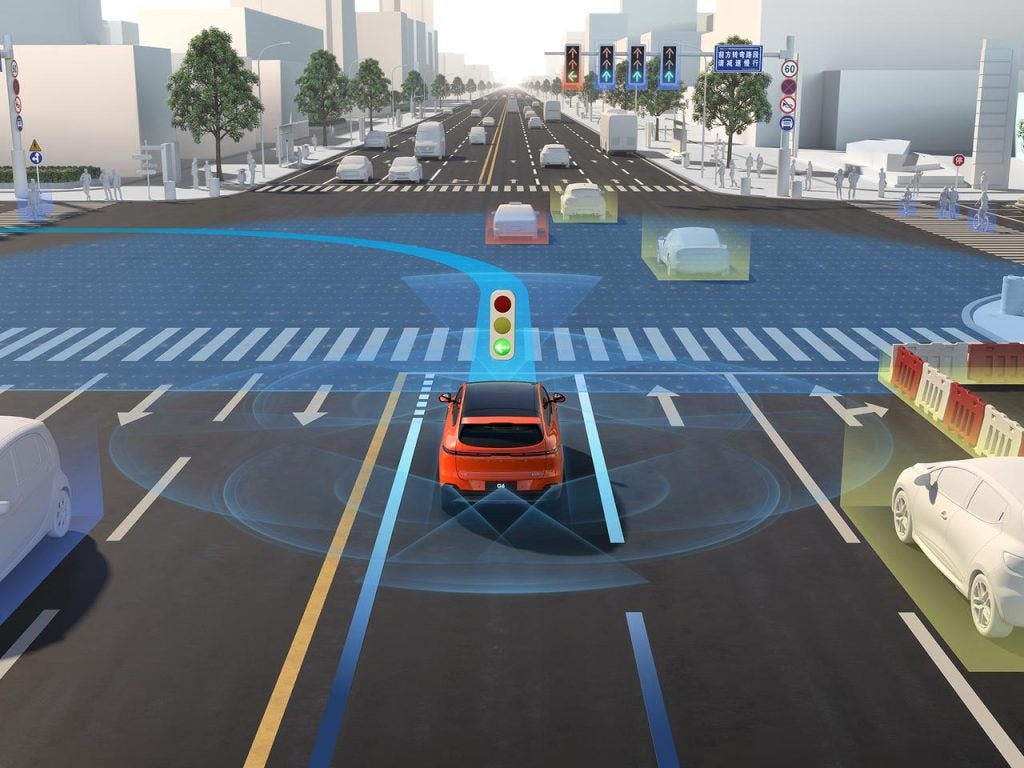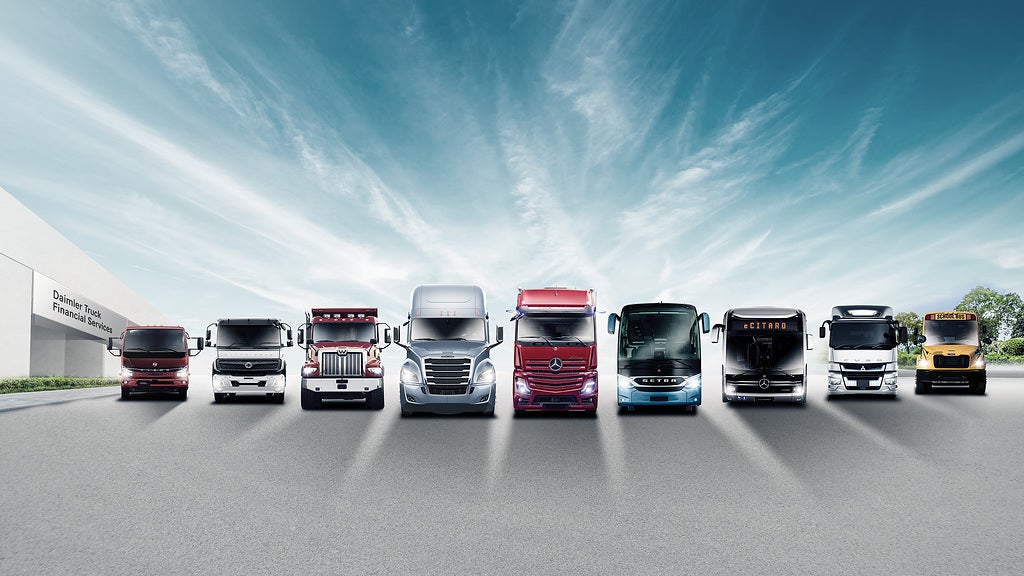BMW has started construction on a new logistics centre for high-voltage batteries at its Leipzig facility in Germany.
The 12-hectare plot will produce a logistics hall for the current fifth-generation high-voltage batteries and an office building.
Construction is expected to be completed in mid-2024 and total investment is expected to exceed EUR100m.
The first stage of construction includes a warehouse, a two-storey office building and a loading tunnel with a combined gross area of 38,000 metres squared. There are plans for a second construction stage, but the company did not confirm what these would include.
The new buildings will provide workplaces for 500 employees. Currently, over 800 employees work in e-component production in Leipzig, with plans for this to rise to 1000 by 2024.
Plant Leipzig currently provides one in three battery modules for BMW’s fully electric vehicles, including the BMW iX1, the BMW i5 and the BMW iX.
BMW said the facility will be powered by green technology. Photovoltaic systems on the roof of the hall will generate 3,000 kW in peak operations and the hall will be heated by a heat pump. The office building will have a green roof, and trees around the building aim to keep temperatures cool inside.
Insect-friendly lights will be used in outdoor areas and electric charging points will be available at parking spaces for cars and trucks. This means electric heavy goods vehicles can operate between the plant and warehouse.
Starting in 2024, the Leipzig plant will run all three stages of the high-voltage battery production process: cell coating, module production and high-voltage battery assembly.
The BMW Group is investing up to EUR1bn in extending e-component production at Leipzig.


